20 Events that Shaped the Decade
20) Fidel Castro hands over power
What seven assassination attempts could not do, time ultimately did.
19) Medvedev elected President of Russia
Vladimir Putin consolidated power and increased his influence in Russia and around the globe throughout his two terms as president in the 2000s. However, when his second term was up, Putin managed to retain power. By taking the role of Prime Minister and leading his hand-picked successor Dimitri Medvedev to an easy election win – although one that was thought to be rife with fraud – Putin has ensured that his control over Russia will continue for years to come.
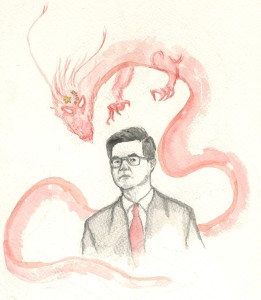
18) Hu Jintao takes control of China
Since the beginning of the People’s Republic of China in 1954, power has only changed hands five times. This in itself makes Hu Jintao’s ascension to the role of President of China and General Secretary of the Chinese Communist Party highly important. The significance of the event is bolstered by the rapid rise of China as an economic power. Under his leadership, China has been able to continue this astounding growth and expand its global influence. At the same time China has seen an improvement in its image throughout the world and increased prosperity for its people.
17) Launch of Wikipedia
Already making strides in providing easy access to information, the Internet leapt forward in January 2001 with the launch of Wikipedia. Providing content on everything: the Battle of Waterloo, Pulp Fiction, Toyota, Vasco da Gama, the Wilhelm Scream, Ernest Hemingway, the White Album, Constantinople, the Great Wall of China, the 2001 World Series . . . the list is never-ending and ever-expanding. Wikipedia has caused controversy in academia, where its use is generally frowned upon, and in politics, where a “Conservapedia” alternative has emerged. A tool to spread knowledge and share culture, Wikipedia has become a cultural icon itself.
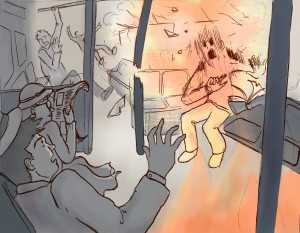
16) London Subway Bombings
The “British 9/11” couldn’t match the U.S. terrorist disaster in terms of human destruction—only 56 people were killed—but it did have similar psychological effects. The three successful subway bombs were detonated by cell phone, and all went off within 50 seconds of each other. The revelation that such readily available means could lead to such coordinated and organized destruction one again let the Western world know that it had every reason to fear.
15) Hurricane Katrina
Hurricane Katrina devastated the city of New Orleans, and its effects are still felt today. Thousands of people died in the disaster, and the city suffered nearly $100 billion in damage. The havoc of the hurricane was augmented by the inept government response, causing it to be not just tragic, but also one of the most shameful moments of in modern U.S. history. Katrina marked a turning point in the presidency of George W. Bush. While people were split on Bush during the middle of his tenure, after FEMA’s horribly mismanaged reaction to Katrina the president’s approval began a downward spiral, leaving him with little support in D.C. and across the country.
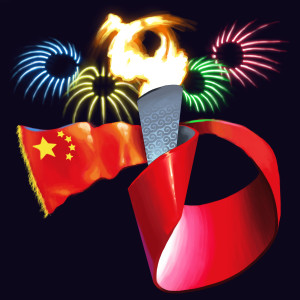
14) Beijing Olympics
In the early 1990s, Chinese leader Deng Xiaoping said that China’s grand strategy would be to “Hide our capacities and bide our time.” In 2008 China announced that it would hide its power no longer. China spent more than $40 billion to host the Beijing games, which involved the construction of an airport, a stadium, and the relocation of nearly 1.5 million people. After the games, the country took a much more aggressive posture in its foreign relations, buying up foreign corporations with valuable resources and actively suggesting the replacement of the dollar as the world’s reserve currency.
13) Google buys YouTube
The Holy Grail of procrastination, YouTube got a big boost in 2006 when Internet giant Google purchased the video mega-site for $1.65 billion. YouTube continued to grow, becoming a cultural phenomenon. With its easy means of uploading, embedding, and viewing video, YouTube turned the Internet into a democratic video-medium. Now YouTube is a mass means of expression, used by millions of artists, advocates, and outspoken individuals with a world of diversity.
12) Madrid Train Attack
Whereas the attacks of 9/11 led to a surge in President Bush’s approval ratings, the 2004 Madrid train bombings resulted in the Spanish incumbent party, which had been ahead in the polls prior to the attacks, being defeated. Upon taking office, the newly elected Socialist party quickly removed every Spanish soldier fighting in Iraq. Though many criticized this move as “letting the terrorists win,” there is little indication that the Spanish people regret their decision. The Spanish Socialists retain the presidency.
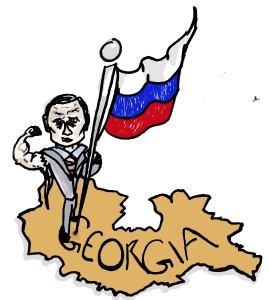
11) Russian Invasion of Georgia
Russia sent shockwaves across the world in August 2008 when it sent a massive military force into the country of Georgia. The Russian military tore its way through the small, relatively defenseless nation, leaving devastation in its path. This excessive show of force was likely done to elicit exactly the response that it received from the global community: those who had dismissed Russia as a second-rate power since the fall of the Soviet Union discovered a newfound, if reluctant sense of respect. Perhaps even more shocking and unsettling was the world’s inability to reign in Russia or limit the impact of its actions.
10) Reelection of Ahmadinejad
The June 2009 reelection of Iranian president Mahmoud Ahmadinejad became a global event when controversy quickly arose over the validity of the results. Ahmadinejad likely maintained his position through mass election fraud, thereby likely limiting his long-term ability to hold onto power. The world watched both in awe as millions of Iranians took to the streets and also in horror as peaceful protests were met with violence and government crackdowns on freedoms of speech and assembly. Ahmadinejad’s legitimacy as the nation’s leader plummeted in the global community. The tainted election and the clerics’ backing of Ahmadinejad could alter the course of the Iranian Revolution. The continued rule of Ahmadinejad could drastically impact the region and the globe for years to come.
9) Invasion of Afghanistan
A geopolitical point of great value since the reign of Genghis Khan, the U.S. and NATO invasion of Afghanistan in October 2001 showed the impact of controlling the small nation that sits in the center of the world’s largest continent. The United States’ overthrow of the Taliban and continued war in Afghanistan has had a seismic impact on surrounding nations, defining the international policies and positions of Pakistan, Iran, Russia, India, and many other nations. The conflict itself continued throughout the entire decade, leaving thousands dead and the future of Afghanistan uncertain.
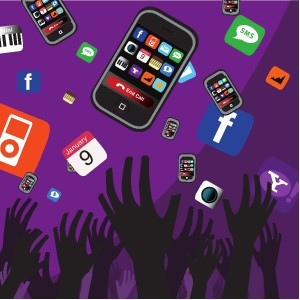
8) Launch of the iPhone
While the iPod changed the way people interact with music, the iPhone changed the way people interact with everything. Ushering in the age of apps, the iPhone put the ability to do anything in a pocket-sized device. Although the business world had been clicking away at Blackberrys for years, the iPhone, launched in 2007, set the new standard of cellular devices, starting a norm whereby everyone wants a smart phone for daily use. The computers people hold in their hands in 2010 are more advanced than those they installed at their desks in 2000. How this technology continues to advance and what people do with such abilities in communication and gathering information is yet unseen.
7) Facebook goes public
Once a niche college network, Facebook became a global force by opening itself to the public in September 2006, allowing everyone to create an account. Within a year Facebook had jumped ahead of its sketchier rival MySpace, adding hundreds of millions of new users. Now the second most visited website in the entire world, Facebook has the potential revolutionize the way individuals communicate and interact for decades to come.
6) Fall of Baghdad
It wasn’t quite the fall of the Berlin Wall, but the image of Saddam Hussein’s statue being pulled down by Iraqi citizens (now known to be a staged event) certainly seemed like another blow struck for human freedom. Unfortunately, Colin Powell’s “pottery barn rule” of governance proved all too true, and U.S. forces remain mired in Iraq.
The turn of the millennium campaign that pitted George W. Bush against Al Gore reflected the division Americans faced, and the diverging paths the country could take. Bush’s razor-thin election outcome – one of four in history that did not include a win in the popular vote – took the United States toward a never-before-seen type of governing: conservatism mixed with Big Government, a combination that brought about unprecedented policy in a wide range of issues both foreign and domestic.
4) Election of Barack Obama
Hailed by the candidate as a once-in-a-generation moment to change the United States, the 2008 election came at a time of uncertainty and instability that seemed to confirm that it would mark a pivotal point in determining the direction of the country for decades to come. While the implications of the outcome largely remain to be seen, the election itself was an event that altered the nation. Obama’s campaign became a national movement for change, sweeping up the country in the cultural phenomenon. At the same time, the campaign’s use of new technologies made 2008 the first “Internet Election,” permanently reshaping campaign strategy and tactics. And at the end of it all Barack Obama shattered one of the United States’ strongest glass ceilings, becoming the first African American elected President of the United States.

3) Indian Ocean Tsunami
Of all the events of the decade, none had a more immediate impact than the Indian Ocean Tsunami. Killing more than 230,000 people from more than 60 countries and leaving nearly 1.7 million people displaced, the earthquake-caused tsunami was a global disaster of biblical proportions and possibly the deadliest natural disaster in human history. This tragic event stands as one of the strongest reasons that the 2000s is often described as the Decade of Disaster.
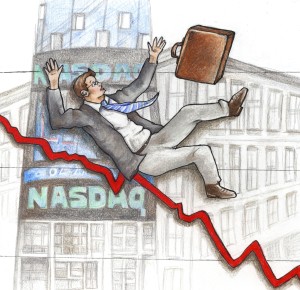
2) Financial Crisis of 2008
For a decade that seemed like it would be defined by national security concerns, 2008 was a year in which the economy was catapulted into center stage. Brought on by a decade of irresponsible overconsumption and the housing bubble, the financial crisis brought the United States back to earth. Meanwhile, growth in the developing world chugs along, and pundits are coalescing around the idea of a “post-American world.”
September 11 turned the world on its head in so many ways. The United States’ status of strength and invulnerability was shattered. International and diplomatic relations were drastically changed as the United States’ inevitable response in Afghanistan reshaped the policies of countries throughout the Middle East. The coverage of the event and its aftermath brought the once-daily news cycle to a resounding end. A War On Terrorism was launched, one that seems to be devoid of victory, defeat, or any possible end. September 11 was not just the defining moment of the decade, but of our entire generation. Often compared to Pearl Harbor and the JFK Assassination, September 11 is rightly labeled as the moment we lost our innocence.
This we missed anything? Let us know! Email your comments to editor@wupr.org and it could be included online, or even in the next edition of WUPR!

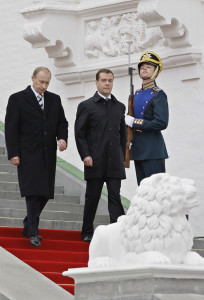
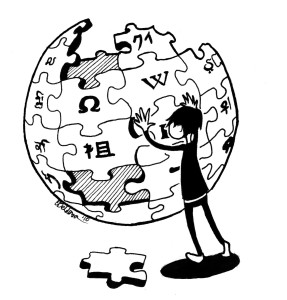
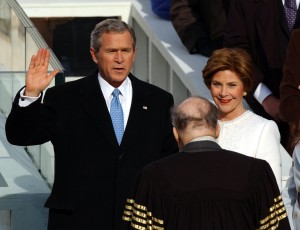

1 Comment
Join the discussion and tell us your opinion.
[…] Featured image via Wupr.org […]